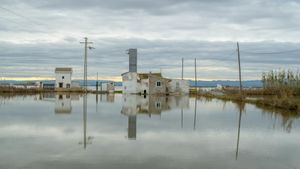North Korea's arms supply to Russia has emerged as one of the most pressing international security concerns, particularly as geopolitical tensions flare between Moscow and Western nations over the conflict in Ukraine. Recently, insights from South Korean intelligence painted a clearer picture of the military collaboration between Pyongyang and Moscow, indicating not only the scale of North Korean arms shipments but also the strategic military exchanges taking place.
South Korea's National Intelligence Service detailed the transport of artillery systems, stating North Korea has sent new batches of conventional weaponry to support Russia's military efforts. Among these arms are reportedly 170mm self-propelled guns and 240mm multiple rocket launch systems, which were conveyed to Russia amid its deteriorated military supply situation. Lawmaker Lee Seong-kweun disclosed during agency briefings this week, "North Korea exported over 50 self-propelled howitzers and 20 multiple launch rocket systems to aid the Russian war effort."
The provision of this military assistance is part of North Korea's strategy to bolster its ally against what both governments see as external threats from the US and its allies. Just days prior to the agency's announcement, social media sourced within Russia showcased images of North Korean artillery arriving by rail, emphasizing the operational engagement between the two nations.
Russian military operations have seen over 10,900 North Korean troops deployed to regions like Kursk, where they engage alongside Russian airborne troops to resist Ukrainian advances. Such troop movements and military cooperation signal the seriousness of North Korea's involvement, prompting urgent discussions among world leaders about the escalation this could bring to the warfront.
North Korea's exchange relationship with Russia has sparked widespread alarm across Europe and North America. Austrian Foreign Minister Alexander Schallenberg articulated concern, stating the deployment of North Korean soldiers showcases Russia's desperation amid the prolonged conflict, demonstrating its shift to employing foreign troops as part of its military strategy.
It is not only military hardware being traded. Reports indicate substantial exchanges of technology too, particularly concerning North Korea’s advancements toward missile development and satellites. South Korean officials suspect Russia has provided advanced air defense missile systems to North Korea, aimed at enhancing their capabilities against potential aerial threats.
This cooperation extends to greater economic ties as well. North Korean leader Kim Jong Un is known to have met with Russian President Vladimir Putin, where discussions likely included arms supplies and other forms of support. At this summit last year, both countries committed to deepening their military and technological ties, underscoring the mutual benefits they reap from their collaboration.
Speculate as one might about the exact nature of these military advancements, experts agree the introduction of advanced weaponry from Russia could lead to significant enhancements within North Korea's existing military arsenal. While the South Korean security adviser Shin Wonsik mentioned missiles and defense systems supplied to bolster North Korea's air defense were provided, specifics about potential nuclear and missle technology exchanges require cautious interpretation. Analysts widely believe such sophisticated weapons will not be transferred freely, especially at the start of this increased North Korean military engagement.
The urgency for North Korea to revamp its defenses can be traced back to recent tensions, where it accused South Korea of several provocations including flying drones over its territories to disperse propaganda. Responding to such perceived threats is seen as pivotal for North Korea, who is also under global sanctions which restrict its access to advanced military technology and economic resources.
The recent strains placed on Russian resources due to heightened military activities in Ukraine, as well as its international isolation following sanctions, have compelled both nations to explore heightened collaboration. While Russia’s military efforts are increasingly reliant on North Korea's vast stockpiles of artillery, it is noteworthy how this military relationship could reshape military balances across the region.
Observers maintain close scrutiny over the implementation and effectiveness of any foreign military hardware North Korea integrates. Though the S-400 missile system is touted as one of Russia's advanced anti-aircraft options, discussions about how significantly it can bolster North Korea’s air defense remains mixed, particularly when Russian military equipment has faltered recently on the battlefield against Ukraine's modern drone tactics.
This situation feeds the complex dynamic not only between North Korea and Russia but within the broader geopolitical climate. Statements from the Pentagon and other military analysts outline concerns over the potential for North Korea introducing new military initiatives based on this recent inflow from Russia. The shifting balance of militaristic influences, primarily set against the backdrop of the war, makes for ever-increasing tensions, and analysts warn it may lead to more aggressive postures by involved nations.
Faced with the unprecedented scale of its military commitments alongside North Korea, Russia continues to strategize amid worsening economic conditions and international isolation. Both governments push back against U.S.-led sanctions and seek to redefine their military capabilities, strengthening their operational seats at the global negotiation table. Although still under global scrutiny, these maneuvers between Pyongyang and Moscow raise pivotal questions about the future face of security cooperation and the sharpening contours of regional conflicts.
Going forward, the world watches with bated breath to see how this complex partnership evolves, aware of potential ramifications not just for the nations directly engaged, but for global security structures.



